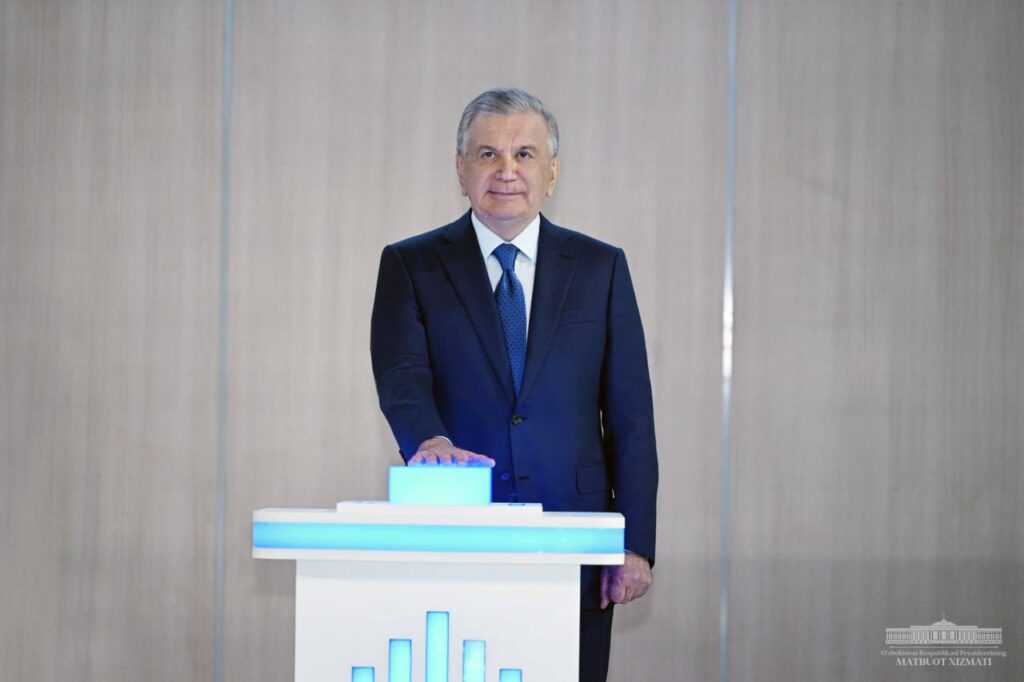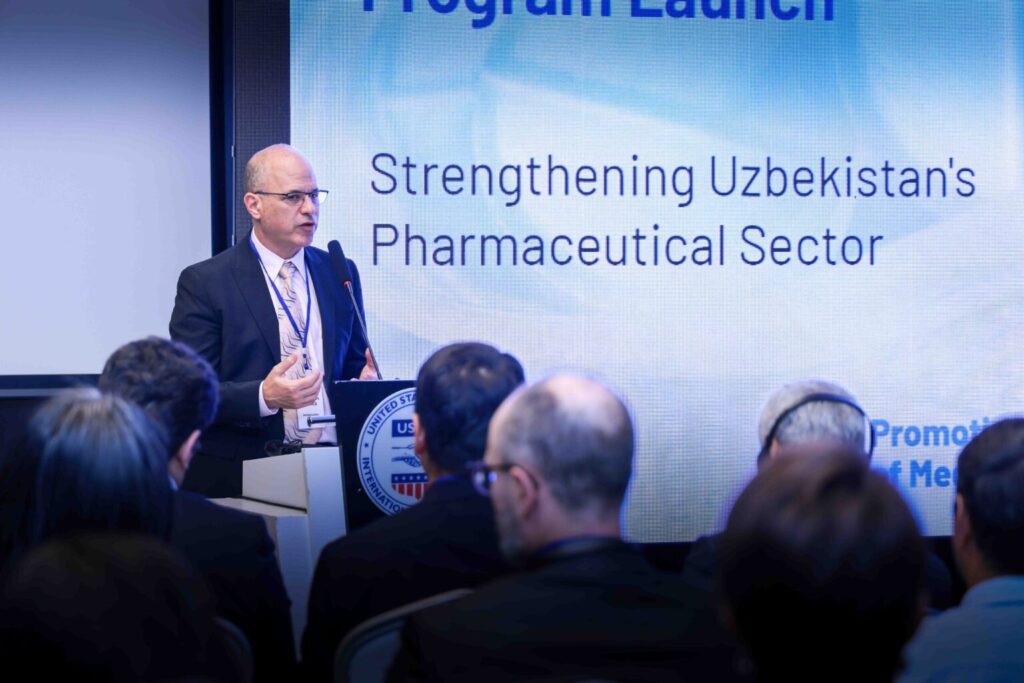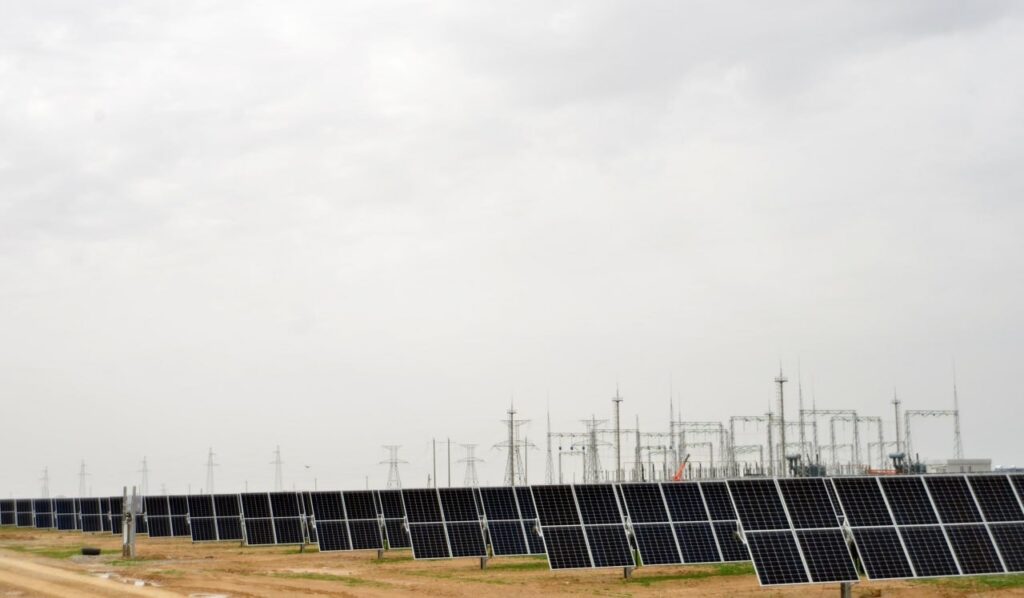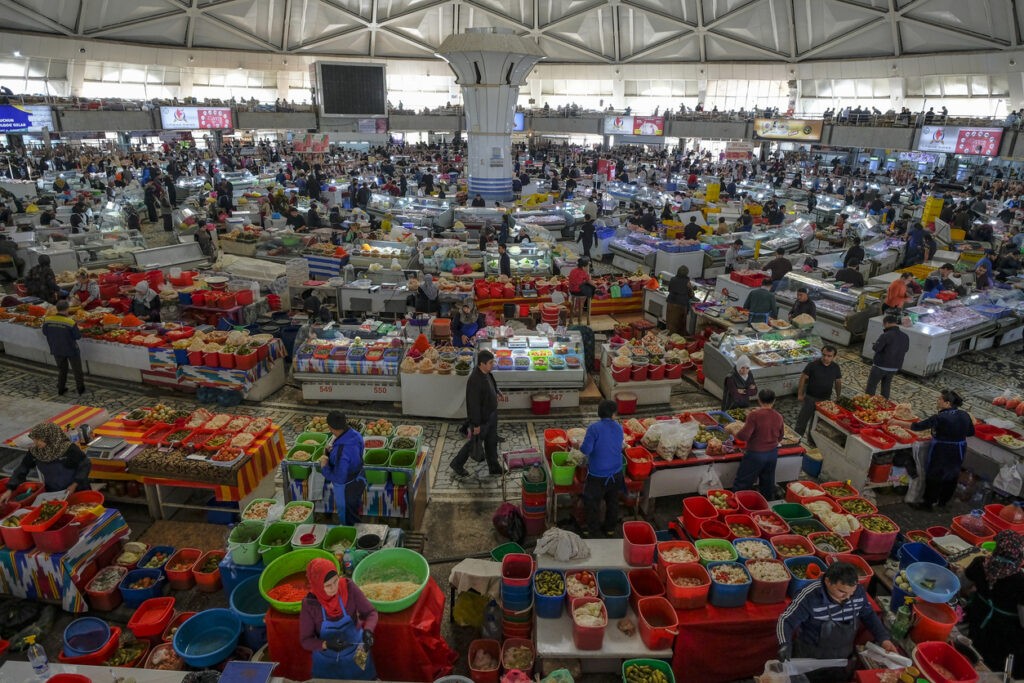Viewing results 103 - 108 of 177
On May 31, construction began on three large facilities in Uzbekistan’s Bukhara region. Officially launched by President Shavkat Mirziyoyev, the ambitious development comprises a gas chemical complex, a solar power plant, and an international airport. The gas chemical complex, to be built in the Karakul free economic zone, is the first plant in the country to employ methanol- to- olefins (MTO) technology. The project aims to attract some $5 billion in investments and advanced technologies from the USA, Germany, Denmark, Austria, Italy, and China. Once completed, the complex will process 1.3 billion cubic meters of natural gas and 430 thousand tons of naphtha per year and manufacture 1.1 million tons of polymer products, in high demand by both domestic and global markets. Two thousand new jobs will be created. The second facility, a 250-megawatt solar power plant to be built by Masdar from the United Arab Emirates, will be connected to the unified energy grid in December 2025. The third initiative is a new international airport which will be much welcomed by the ever-increasing volume of foreign tourists visiting Uzbekistan. In 2023 alone, some 1.4 million tourists flew into Bukhara. Built through private partnership at a cost of $226 million, the airport will have the capacity to process 1.2 thousand passengers per hour. Designed to meet international standards, the airport will both improve the quality of service and help attract more international airlines to Bukhara.
The launch of USAID’s Diversifying Asia’s Pharmaceutical Supply Chain project was attended by U.S. Ambassador to Uzbekistan Jonathan Henick and representatives of the country’s Ministry of Health and Agency for Development of the Pharmaceutical Industry. Running for two years and costing US $2.5 million, the project aims to strengthen local pharmaceutical regulation, enhance local technology and workforce skills, and attract investment in the industry. It will also ensure that medicines produced in Uzbekistan meet both national and international quality standards. Speaking at the launch, Henick stated, “Through our partnership, we will improve the health of the people of Uzbekistan while also improving the strength and responsiveness of the public and private pharmaceutical sectors. By aligning with global standards, we not only protect patients but also boost trust in local medicines, pharmaceutical companies, pharmacists, and the healthcare system as a whole.” A key objective of the project is promoting domestic production of medicines to boost the sector's contribution to the nation’s economic growth. Despite being Central Asia’s largest pharmaceutical supplier, with over 220 private manufacturers, Uzbekistan still relies heavily on imported medicines and raw materials. To address this issue, the Government of Uzbekistan offers various means of support and incentives for local manufacturers including import substitution and robust quality control regulations. Uzbekistan currently produces around 45% of the country’s medicines, a figure which the government aims to increase to 80% by 2026.
China Datang Overseas Investment Co. Ltd is poised to construct a solar photovoltaic power plant with a capacity of 263 MW in the Buka district of Tashkent, Uzbekistan. The project was approved by a Resolution of the President of Uzbekistan, dated 24 May, 2024. To secure its implementation, the Chinese company aims to attract $150 million in foreign investment and the National Electric Networks of Uzbekistan has guaranteed to purchase electrical energy generated by the new power plant for 25 years. According to the resolution, the main objectives of the new solar plant are to ensure a stable supply of electricity to both the local population and economic sectors, reduce natural gas consumption in electricity generation, and attract foreign investment in expanding the use of renewable energy sources in Uzbekistan.
Plans are afoot to built the largest amusement park in Central Asia in Uzbekistan. The new park will provisionally be named Grand Serai, with the complex including several world-class facilities – a seasonal water park, an amusement park, a hotel, a shopping gallery, restaurants and food courts, and a beach area for recreation. The Akfa press service has stated on its Telegram channel that the area of the complex will be 28 hectares, 20 of will be are occupied by the water park. The project is currently in the site selection phase, with the garden planned to be built by 2027. Investment in the design and construction of the park exceeds $200 million. The Akfa press service also posted an artists impression of the site on YouTube. America’s Legacy Entertainment has developed more than 20 attractions for Grand Serai, which will include a nightly acrobatic show involving innovative 3D mapping technologies in coordination with Cirque du Soleil experts. The architectural concept of the park was created based on the history and traditions of Uzbekistan.
Uzbekistan will receive $100 million from the World Bank to improve its social services. The funds will also be used to set up 50 social service centers, train professionals to work with vulnerable people, and employ people with disabilities. Under the 'Inson' project, various vulnerable groups will be able to receive more social services. There will be an additional $2 million grant to assess the impact of services on the wellbeing of vulnerable children. "The project will assist in developing the legal and institutional framework for the 'care economy' sector in Uzbekistan. It will also help improve access to demanded social services that are still inaccessible to thousands of people, including elderly citizens, people with disabilities, victims of domestic violence, and socially vulnerable children," said the World Bank's country manager for Uzbekistan Marco Mantovanelli. The 50 social service centers are expected to facilitate targeted outreach to those in need, including the creation of a legal framework to improve the quality standards of social services. It is planned to train 1,200 people with disabilities in crafts and vocational skills, half of them young people aged 15-24. The project will also provide quality legal, medical, psychological, and other assistance to female victims of violence. They will be allowed to learn computer and financial literacy and a profession. It is envisaged to create an adaptive system of social protection for vulnerable people during emergencies and due to climate change. For 100,000 poor citizens in rural areas, the program will provide seeds for climate-resistant crops, agricultural tools, and training in farming under changing climatic conditions.
Uzbekistan is to establish an new Atomic Energy Development Agency under the Cabinet of Ministers; raising the level of the agency which currently exists as a subdivision of the Ministry of Energy. The move supports plans for the construction of Uzbekistan’s first-ever nuclear power plant and aligns with the Presidential Decree “On measures to improve the system of public administration and control in the field of subsoil use, industrial, radiation and nuclear safety, as well as the use of atomic energy,” adopted on 24 May. Once in operation, the new Atomic Energy Agency will be responsible for state policy in the use of atomic energy for peaceful purposes. The presidential decree also includes the establishment of a Committee for Industrial, Radiation and Nuclear Safety conducted by the Cabinet of Ministers. As a national executive body, the committee will be charged with the implementation and coordination of a unified state policy to oversee and ensure safety measures at nuclear energy and nuclear technology facilities and at hazardous production facilities.






